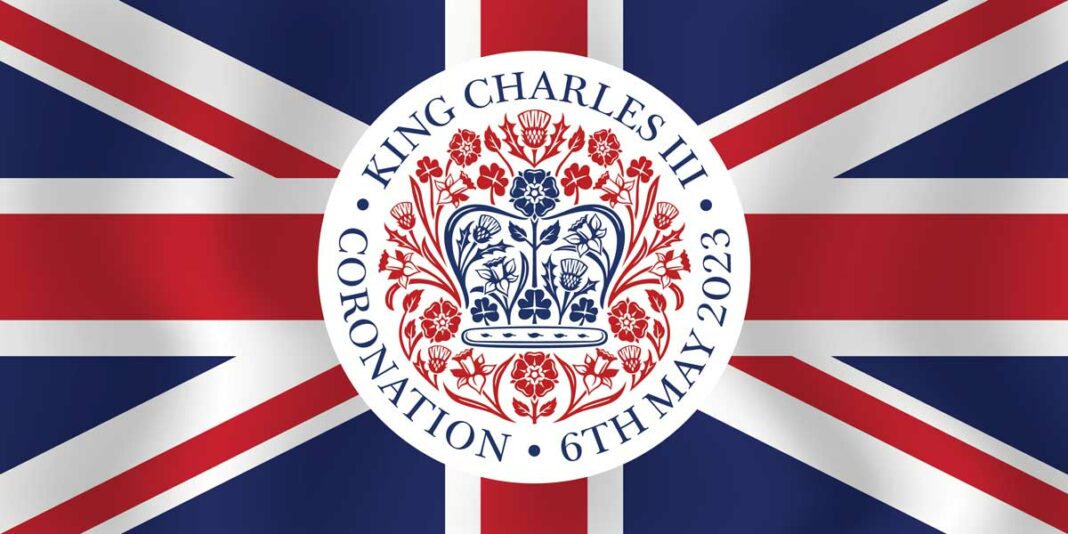EDITOR’S NOTE: Sparked by the Saturday coronation of King Charles III as Canada’s new head of state, The Expositor asked two Manitoulin Island students of history to reflect on the occasion, the past and the future. They are Professor Wayne Hunt of Mount Allison University and Kagawong and Dominic Beaudry of Wiikwemkoong Unceded Territory, a lifelong educator.
The coronation as a making and unmaking of history
by Dr. Wayne Hunt

Canadian economist John Kenneth Galbraith once observed that by the laws of thermodynamics a bee cannot fly before adding, wryly, that the bee is thus a very insecure insect. The same point can be made, with emphasis, about the British monarchy.
Several centuries ago, in making the case for a departure from old world values and hierarchies, Thomas Paine wrote that a hereditary king was as paradoxical as a hereditary doctor or hereditary mathematician; closer to our time, the Labour politician and anti-monarchist, Tony Benn, said that hereditary monarchies made as much sense as hereditary airline pilots. So, the question is: why are they still with us? From this, other questions follow, starting with why, at Charles III’s coronation, was Charles III confirmed as King of Canada and King of other Commonwealth Countries? One question follows upon another—questions that came to my own mind as I participated in a recent conference in London, England on relations between Canada and the United Kingdom.
At that event, a former UK High Commissioner to Canada quoted poll after poll to show the declining relevance of the monarchy for a younger demographic in each and every Commonwealth Country as many places considered severing formal ties with the monarchy. In this particular reading of events, the British monarchy had uncomfortable links with the most excruciating excesses of British imperialism, including the slave trade.
But this was not the view of the monarchy that I could see on the streets of London on coronation weekend. Flags everywhere, street parties everywhere, and despite the rain, happiness everywhere—on full public display. Not everyone, however, gave full-throated support to the monarchy. Protestors too were out in force, festooned not with Union Jacks, but with placards that read ‘Not My King,’ or more unsettling in its implications, ‘I Did Not Elect Charles!’ as if the ballot box was the only way to bring people together in societies. (But of that, more later. For now, it is simply important to note that people have a legitimate right to protest in a democratic society and this right was cut short by the actions of the police, who too quickly followed recent Conservative government legislation in curbing protest movements. Too many of these people were taken away in handcuffs.)
The truth is that the monarchy survives because it is above politics. King Charles has always had strong views on environmentalism and public architecture. His is a view, not always in fashion, that we should be stewards of the land and that we should hold this view as a sacred trust stretching from far in our past to far in the future, for generations yet to be born. It was thereby fitting that prior to the coronation ceremonies he met with our first Indigenous Governor General, Mary Simon, and other Indigenous leaders from Canada. The coronation itself was an amalgam of old and new. From the past, came long-venerated symbols and ceremonies, with the most sacred being the private anointment of the King with holy oil, along with the declaration that he is Defender of the Faith, rather than, as he has many times declared, to be Defender of Faith. (A provision missing in the Canadian version of the ceremony.) Charles insisted on a multifaith ceremony, and this was much in evidence.
When it comes to a description of what followed in Westminster Abbey words fail. The spectacle was magnificent. This was British ceremonial practice on display for the entire world. The actor, Stephen Fry, a close friend of the King, described it as “extraordinary and remarkable,” descriptions that in themselves do not come close to taking in what was actually happening. The music was for the heavens, sublime in every way, but I suspect that first among equals in this respect will be the singing of Sir Bryn Terfel’s rendition along with the choir of Westminster of ‘Kyrie Eleison’—and performed for the first time in Welsh at a coronation. Handel’s ‘Zadok the Priest’ was equal in beauty but did not match the historic context. There were many scene-stealers, starting with the youngest generation of Royals who took their place in the sacred ceremonial practices but for many of the television-watchers, it was Queen Camilla’s day. She secured her crown, along with her place in history.
For the more politically minded, it was Penny Mordaunt’s day. Last year, Penny Mordaunt was a star in decline. After a career in the armed forces, she served as Secretary of Defense and ran, unsuccessfully, for the top job. Then came her personal resurrection. As Lord President of the Council, she carried the sword of state and exchanged it for the jewelled sword of offering. The sword of state dates back to the seventeenth century and weighs eight pounds. Mordaunt did countless press-ups to strengthen her arms. She did not want to falter at this key moment. But she need not have worried. Social media posts from partisan opponents lit up with praise for her. After the next election, with Labour slated to take power, she might have a second political life.
The ceremonies were less about the assembled dignitaries than about how the broader public or set of publics, read their own dreams and aspirations into events. This is about fairy tales to be sure, but it is also about the power of the tabloid media to make a soap opera out of the life of those who are working Royals.
Monarchy survives because it creates a space for itself—one that money and market forces cannot fill and one that partisan political forces could not fill. Think about it. Who would Brits elect as sovereign? Boris Johnson? Sir Keir Starmer? Or would it be a populist on the order of Nigel Farage? And in Canada who would be elected? We have individuals of probity and repute, but look at how our former Governor General, David Johnston, is doing in his role of special rapporteur into foreign interference (read interference from China primarily but not exclusively) in Canadian elections.
Why do constitutional monarchies persist? Maybe it is because we cannot let money take hold of public life. Perhaps. Perhaps too we need a sense of the sacred and a sense of causes bigger than ourselves. State power was on display at the coronation with the branches of the military on full regalian display, but it was very much fused with the spiritual power of a state religion, the Church of England.
As the Economist recently noted, of the world’s 20 top democracies, half are constitutional monarchies. In contrast with the larger ceremony, 70 years ago, when Charles’s mother was crowned, the political and administrative and creative classes on display here were more diverse and inclusive. That can only be counted as a positive sign and give hope to the future. Charles made clear that like his mother he was there to serve rather than be served and that institutions such as the Prince’s Trust will give hope to numerous lives where hope is in short supply.
At the end of the day, this coronation celebrates charitable work and community-building. Hear, hear!
A new leader to proceed with colonization
by Dominic Beaudry

Not my king. I view this event as a tragic manifestation—as a theft of Turtle Island, an abomination. Our people self-governed in our ancient civilization and the colonizer never consulted with due respect but instead provided humiliation and degradation.
This despicable celebration is the continuation of an heir with savage imagination. The royals have ruled with lies and fiction to charge with their greed and massive corruption.
The Anishinaabe will not partake in this fictitious celebration—we will plan for a meaningful and true reconciliation. Canada does not require a royal commemoration. This so-called king will only bring destruction and human devastation. He is our king only in their imagination. We are Anishinaabe, an ancient civilization.





